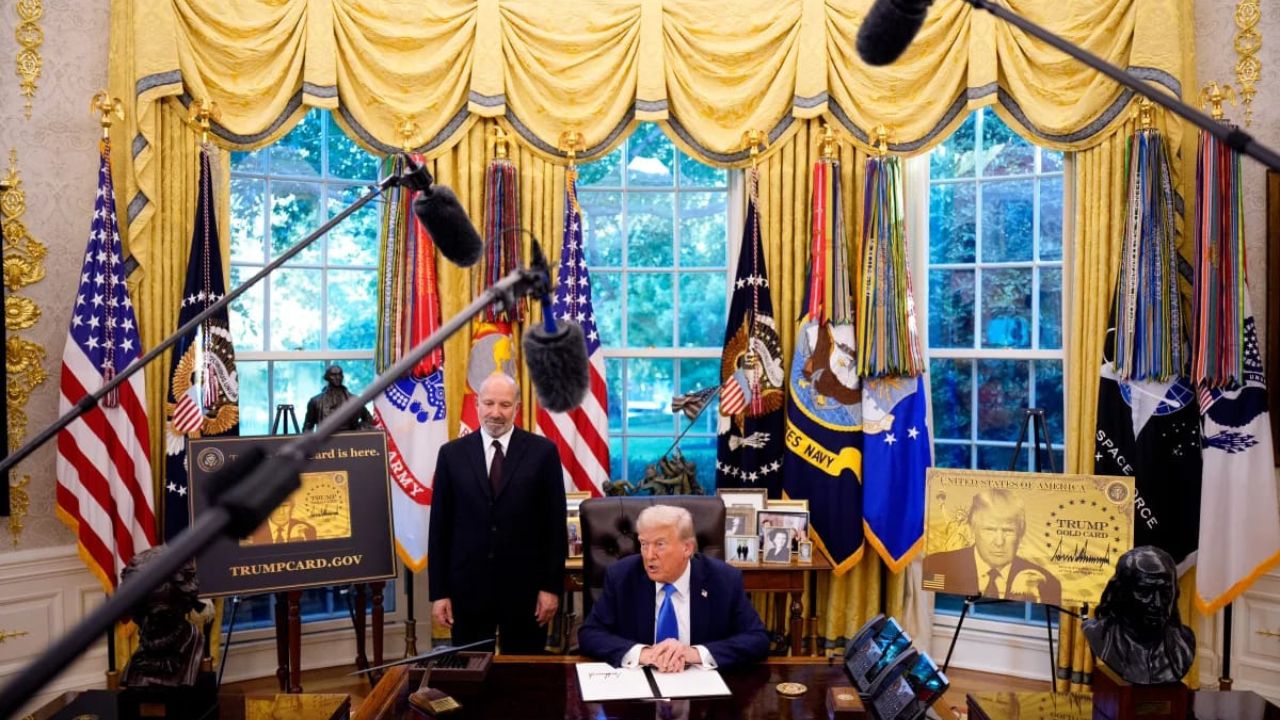In a dramatic move that could reshape U.S. immigration policy and impact global talent pipelines, President Donald Trump announced two major executive actions on Friday aimed at raising billions of dollars through new visa fees.
The first action introduces a brand-new visa category, while the second imposes a $100,000 annual fee on high-skilled foreign workers entering the U.S. through the H-1B program — a change that could have massive implications for tech companies and other employers.
Introducing the “Trump Gold Card”
One of the headline announcements was the creation of a new visa option for wealthy foreigners, which Trump dubbed the “Trump Gold Card.”
Under this program:
- Foreign nationals can gain entry to the U.S. by paying $1 million personally
- Or by having their employer pay $2 million to sponsor them
“This program will raise more than $100 billion, which we’ll use for cutting taxes and paying down debt,” Trump said during the signing ceremony at the Oval Office. “They’re going to spend a lot of money to come in.”
A senior administration official added that the White House is also working on a “Platinum Card” visa to replace the existing EB-5 investor visa. This premium visa would cost $5 million and allow foreigners to spend up to 270 days per year in the U.S. without being subject to U.S. taxes on non-U.S. income. Congressional approval will be required before the Platinum Card can be implemented.
$100,000 Annual Fee for H-1B Visa Holders
The second and arguably more controversial action is a new $100,000 fee per year for every H-1B visa worker.
The White House says this measure is designed to curb abuse of the H-1B program and to ensure that only the most valuable and highly skilled workers are brought into the country.
“We need great workers,” Trump said. “And this pretty much ensures that this is what’s going to happen.”
Currently, companies only pay a $215 lottery registration fee plus several thousand dollars in filing costs — a far cry from the new six-figure price tag.
Commerce Secretary Howard Lutnick defended the move, saying:
“Either the person is very valuable to the company and America, or they’re going to depart and the company is going to hire an American. If you’re going to train people, you are going to train an American.”
What This Means for Tech and Business
The H-1B visa program allows 85,000 highly skilled foreign workers — many of them software engineers and medical professionals — to work in the U.S. each year. Tech giants like Amazon, Microsoft, and Apple are among the largest sponsors.
However, critics — including members of the Trump administration — argue that some companies exploit the program to hire foreign workers at lower wages, disadvantaging American job seekers.
A 2020 Economic Policy Institute study found that many H-1B employers do indeed pay below-market salaries. This new $100,000 fee is seen as a way to eliminate lower-paid H-1B hires and limit the program to only the highest-value workers.
Political and Economic Reactions
The move is expected to draw mixed reactions.
- Supporters argue that it protects American workers and ensures companies only hire foreign talent when absolutely necessary.
- Critics, including tech leaders like Elon Musk, have long maintained that the U.S. does not produce enough highly skilled engineers to meet demand, warning that stricter visa rules could drive innovation and talent overseas.
Trump’s decision comes amid a broader push by his administration to raise immigration-related fees — including asylum applications and work permits — to fund new immigration agents, detention centers, and enforcement operations.
Bottom Line
This overhaul marks one of the most significant changes to U.S. visa policy in years. The Trump Gold Card and $100,000 H-1B fee could reshape the landscape for skilled immigration, potentially benefiting top-tier talent while making it prohibitively expensive for companies to hire foreign workers at lower wages.
Whether this move strengthens the U.S. labor market or pushes talent away to other countries remains to be seen — but one thing is clear: immigration just got a whole lot more expensive.


